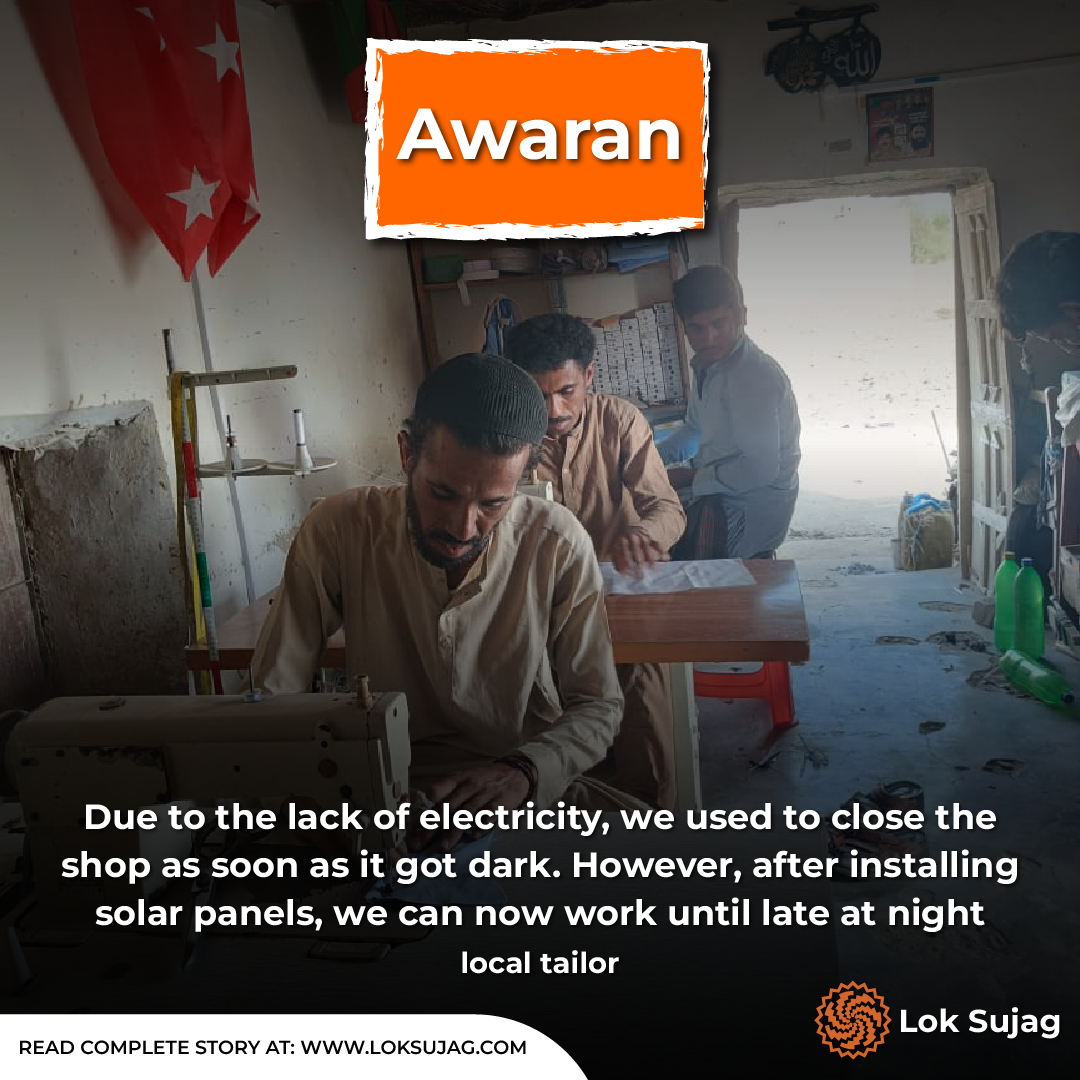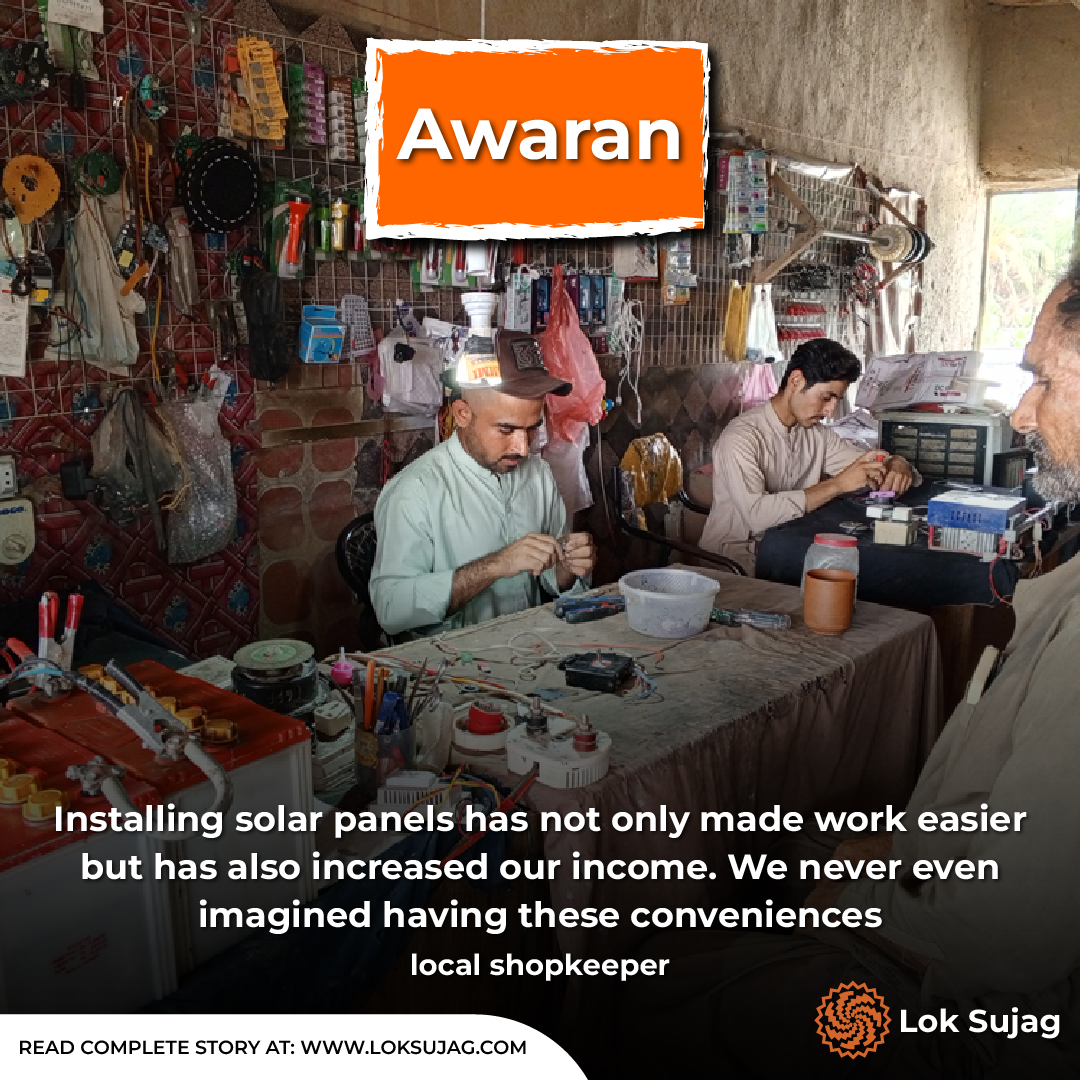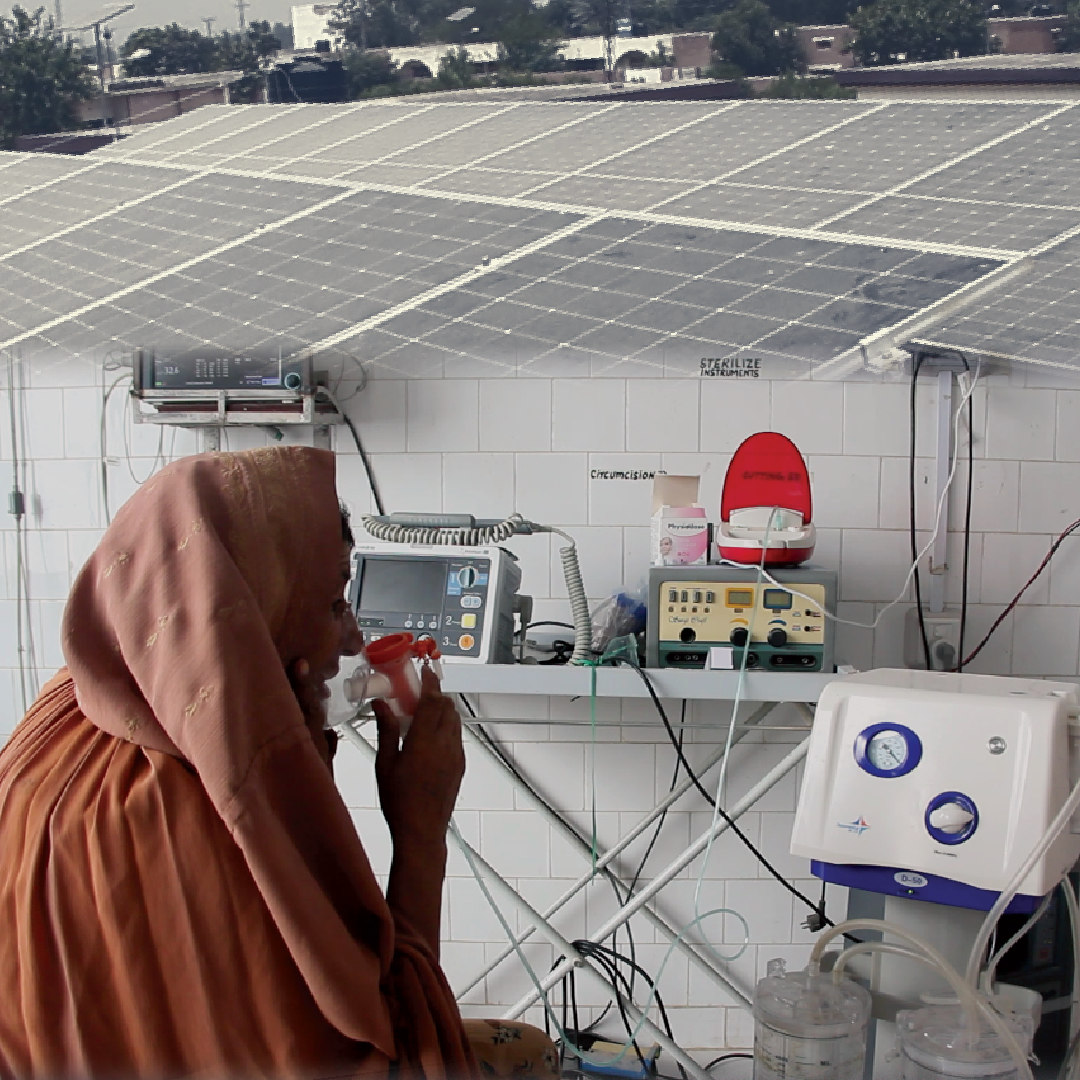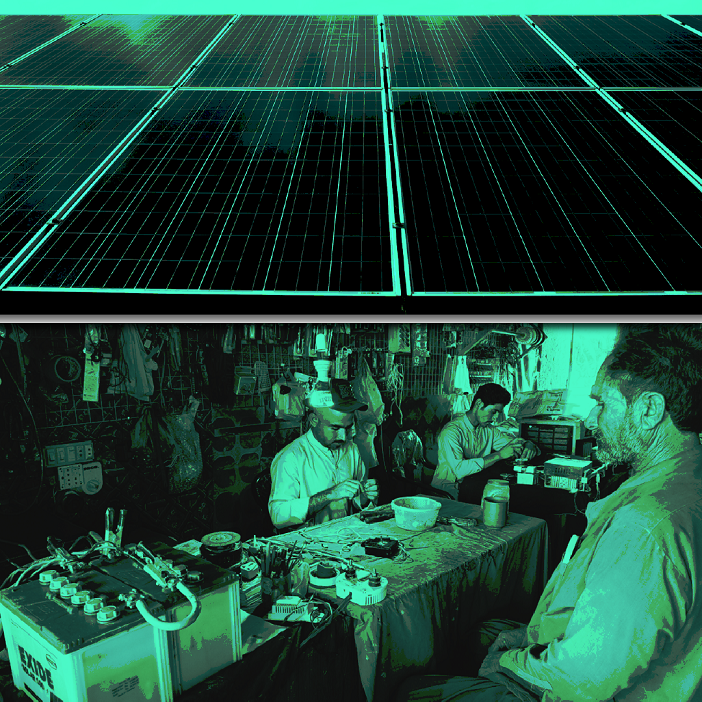Sixty-three-year-old Lal Bakhsh is a blacksmith (locally known as Hadad) who lives in Goth Bakar. He has set up a furnace under a canopy next to his house at a village located in tehsil Jahu, a town of district Awaran.
Lal Bakhsh goes to work at the sunrise. His two sons, Waseem and Maheem, also help him in his work. On the day of the Lok Sujag visit, Waseem did not come as there was not much work and Bakhsh entrusted the task to Maheem while he himself got busy with making Mazri mats. Maheem gives coal fire in the furnace and the fan starts running as he connects the wires of the solar panels to the motor.
Maheem says that the furnace fan was initially operated manually for which a man would continuously rotate the handle of the fan throughout the day. However, now the old method has been replaced by an electric fan running on solar energy.
“It used to take us several hours for tool manufacture using the manual fan but solar has made it convenient for us. The customer’s demands are fulfilled on time and our income has also increased,” he tells Lok Sujag.
Lal Bakhsh was not aware of a solar-powered furnace fan until a short time ago. According to him, during his visit to the Awaran district, he noticed his fellow craftsman using solar energy in their workshop.
“On the same day, we bought a fan with a solar plate (panel) and a small motor. We replaced the old handle and started working. Everyone was surprised to see the operating fan. Seeing us, the local craftsmen around also began adopting the same method.”
Meanwhile, the coals on the furnace turned into embers. Maheem placed the iron on them and signalling towards the fan he said, “Look! It wasn’t possible earlier to blow the air through the handle at this speed.”
The iron gets red hot in no time and Maheem starts hammering it to give it the shape of a sickle.
“We are now totally dependent on solar panels as they are extremely convenient. Previously, we also had to work during the bad weather and at night also due to the slow pace of work but now we stop working by the evening,” says Maheem.
Including Lal Baksh, solar technology has facilitated the employment of hundreds of artisans, craftsmen, technicians and labourers in Balochistan.

Thirty-four-year-old Zahid Hussain has been running his tailoring shop for nine years in village Goth Damb Ali Muhammad of tehsil Jahu. He learned tailoring from his relatives while staying in Lyari, Karachi.
He says when he returned from Karachi, he did not have enough money to rent a shop in the market and start his business. So he decided to open his own tailoring shop in the village.
“There was no electricity here and I bought a treadle sewing machine to start my work. Later, my younger brother, Riaz, joined me. However, we also included Abdul Waheed (an artisan) in our team in 2018 when we installed solar panels at the shop.”
To the question of how he got the idea of installing solar, Zahid called it a coincidence as one day he went to Bela (the city of Lasbela district).
“I saw a tailor master running sewing machines on a solar system. I got information from him, went straight to Karachi, bought solar panels and returned to the village. After installing the solar system at the shop, I removed the pedals from the sewing machines and replaced them with motors.”

According to Zahid, barely two clothes were sewn during the whole day at his shop previously. However, now he can sew eight suits per day on Eid (or any special occasion) after shifting to solar energy.
“We used to close the shop in the evening due to the lack of electricity. But now, there is also an arrangement of light after installing batteries along with solar. Now we can work till late at night.”
Shabbir Latif’s ‘Solar Electric Shop’ in the middle of Waja Bagh Bazaar, Jahu, is often crowded with customers. Someone has come to fix a solar panel while another person’s summer submersible pump or mobile phone is malfunctioning.
He says this shop was set up by his father, Abdul Latif, who used to repair radios, tape-recorders, watches etc. But with the advent of solar technology, it has turned into an ‘electric shop’ that his father handed over to him.
Shabbir Latif picks up the kavya (soldering tool) and continues to speak while soldering the solar plate board.
“Previously, it used to take hours to apply solder. Heating kavya was initially done with an oil stove and then with a gas cylinder, which was a very difficult task. Now the same solder is applied in minutes with the convenience of solar energy.”
Also Read

How is solar energy easing troubles of tribal district Khyber?
He says that he has taken a breath of relief with the arrival of the solar energy system.
“It has not only made our work easier but also boosted our income. All these facilities, including these fans and lights, were never in our imagination.”
He mentions that to run his entire system, he has installed only one solar panel of 580 watts, two batteries of 200 amperes, a controller and a small inverter. All this equipment cost him Rs80,000. This system provides electricity 24/7, which is no less than a blessing and it has become his livelihood.
Mureed Hussain, fondly called Babul by his fellow workers, was engaged in laying bricks for a school building in Pilar, a northern area of Jahu. He, along with other labourers, took this work (the sub-contract) from the contractor. He says he had to get a water tanker worth Rs1,000 daily as it was difficult to get water here. Therefore, only water used to cost him Rs30,000 per month.
“We raised money and bought a solar panel, battery, submersible pump and pipe. Now, we are fetching water from a well, which is 1,500 feet away from us. This has made our work easier. Not only the cost of tankers is saved but also the problem of lighting at night has also been solved,” says Mureed.
Published on 25 Jul 2024




















